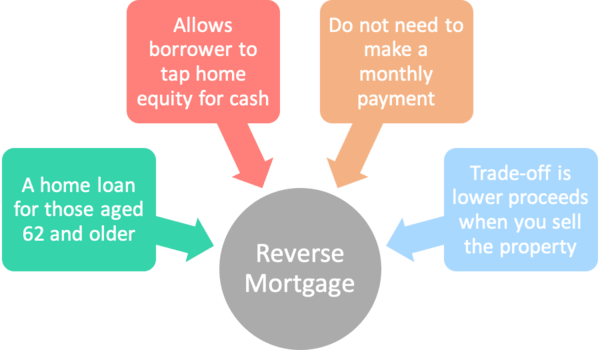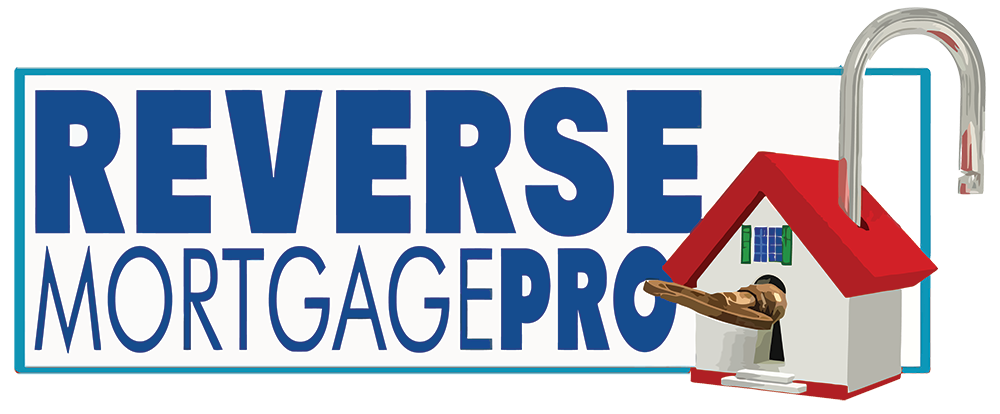Key Factors to Consider Before You Purchase Reverse Mortgage
Key Factors to Consider Before You Purchase Reverse Mortgage
Blog Article
Unlock Financial Flexibility: Your Guide to Investing In a Reverse Home Loan
Recognizing the ins and outs of reverse home mortgages is vital for homeowners aged 62 and older seeking economic freedom. This special financial instrument makes it possible for seniors to utilize their home equity, changing it right into obtainable cash for numerous requirements, from healthcare to way of living improvements. Navigating the eligibility benefits, expenses, and requirements can be intricate. As you consider this alternative, it is essential to understand not only exactly how it works however likewise the ramifications it may have on your monetary future. What are the essential elements you should evaluate before making such an impactful decision?
What Is a Reverse Mortgage?

The basic appeal of a reverse home loan exists in its potential to boost financial versatility throughout retired life. Property owners can make use of the funds for various functions, consisting of clinical expenses, home enhancements, or daily living prices, thus offering a safeguard during a critical point of life.
It is necessary to recognize that while a reverse mortgage permits increased money circulation, it additionally lowers the equity in the home over time. As rate of interest collects on the outstanding car loan equilibrium, it is essential for possible borrowers to thoroughly consider their long-lasting monetary strategies. Consulting with a reverse home mortgage or an economic advisor specialist can provide important insights into whether this option aligns with an individual's financial goals and circumstances.
Eligibility Requirements
Understanding the qualification needs for a reverse home mortgage is essential for homeowners considering this financial option. To certify, candidates have to go to least 62 years old, as this age standard permits senior citizens to gain access to home equity without regular monthly mortgage payments. In addition, the home owner needs to inhabit the home as their main home, which can consist of single-family homes, particular condominiums, and manufactured homes fulfilling details standards.
Equity in the home is another essential need; house owners typically need to have a substantial amount of equity, which can be determined via an evaluation. The amount of equity readily available will straight influence the reverse home mortgage amount. Furthermore, candidates should show the capability to maintain the home, consisting of covering residential property taxes, homeowners insurance policy, and maintenance prices, guaranteeing the property stays in good problem.
Furthermore, possible borrowers need to undertake a financial evaluation to examine their earnings, credit rating, and general monetary scenario. This assessment assists lenders identify the candidate's ability to fulfill continuous obligations associated with the residential or commercial property. Meeting these needs is essential for safeguarding a reverse home loan and guaranteeing a smooth monetary transition.
Benefits of Reverse Home Loans
Various benefits make address reverse mortgages an enticing choice for seniors aiming to improve their economic adaptability. purchase reverse mortgage. Among the key advantages is the capacity to convert home equity right into cash without the demand for regular monthly home loan payments. This feature enables senior citizens to accessibility funds for different needs, such as medical expenses, home renovations, or daily living prices, consequently easing financial stress
Furthermore, reverse home mortgages offer a safeguard; seniors can remain to stay in their homes for as long as they meet the lending demands, cultivating security throughout retirement. The profits from a reverse home mortgage can also be utilized to postpone Social Safety and security benefits, potentially resulting in greater payouts later.
Additionally, reverse home loans are non-recourse finances, indicating that borrowers will never owe even more than the home's worth at the time of sale, protecting them and their successors address from economic obligation. Finally, the funds obtained from a reverse home mortgage are usually tax-free, including one more layer of economic relief. In general, these advantages setting reverse home mortgages as a practical solution for senior citizens looking for to boost their monetary circumstance while keeping their cherished home setting.

Charges and costs Included
When thinking about a reverse mortgage, it's important to be aware of the various prices and costs that can influence the general monetary photo. Understanding these expenditures is critical for making an informed decision regarding whether this monetary product is appropriate for you.
One of the main expenses connected with a reverse home mortgage is the origination charge, which can vary by loan provider but generally ranges from 0.5% to 2% of the home's appraised worth. Additionally, house owners need to anticipate closing costs, which might include title insurance, appraisal fees, and credit report fees, usually amounting to several thousand bucks.
Another significant expenditure is mortgage insurance policy premiums (MIP), which protect the lending institution versus losses. This cost is normally 2% of the home's worth at closing, with a continuous annual costs of 0.5% of the staying financing equilibrium.
Finally, it's essential to take into consideration continuous costs, such as real estate tax, property owner's insurance coverage, and maintenance, as the borrower stays in charge of these expenses. By carefully reviewing these charges and expenses, house owners can better assess the monetary implications of going after useful reference a reverse home loan.
Actions to Get Going
Beginning with a reverse home loan involves numerous vital actions that can aid enhance the process and guarantee you make educated choices. Analyze your financial circumstance and identify if a reverse home mortgage lines up with your long-term goals. This consists of examining your home equity, current financial obligations, and the need for extra income.
Next, research study various loan providers and their offerings. Look for reputable establishments with positive evaluations, clear fee frameworks, and affordable rate of interest. It's important to compare problems and terms to locate the very best suitable for your demands.
After selecting a loan provider, you'll need to complete an in-depth application procedure, which usually calls for documents of earnings, possessions, and residential or commercial property details. Involve in a therapy session with a HUD-approved counselor, who will give understandings right into the ramifications and responsibilities of a reverse home mortgage.
Verdict
In verdict, reverse home loans provide a practical alternative for senior citizens seeking to improve their financial security during retirement. By converting home equity right into accessible funds, property owners aged 62 and older can resolve different financial requirements without the pressure of regular monthly settlements. Understanding the intricacies of qualification, benefits, and associated expenses is vital for making informed decisions. Careful consideration and planning can bring about enhanced high quality of life, making certain that retirement years are both safe and meeting.
Understanding the intricacies of reverse home mortgages is vital for house owners aged 62 and older seeking monetary flexibility.A reverse home mortgage is an economic item designed largely for homeowners aged 62 and older, allowing them to transform a part of their home equity right into cash - purchase reverse mortgage. Consulting with a monetary consultant or a reverse home loan expert can offer beneficial understandings into whether this option straightens with a person's economic objectives and scenarios
In addition, reverse home loans are non-recourse fundings, suggesting that debtors will certainly never owe more than the home's value at the time of sale, securing them and their heirs from monetary liability. On the whole, these advantages placement reverse mortgages as a practical option for seniors looking for to improve their monetary circumstance while maintaining their treasured home atmosphere.
Report this page